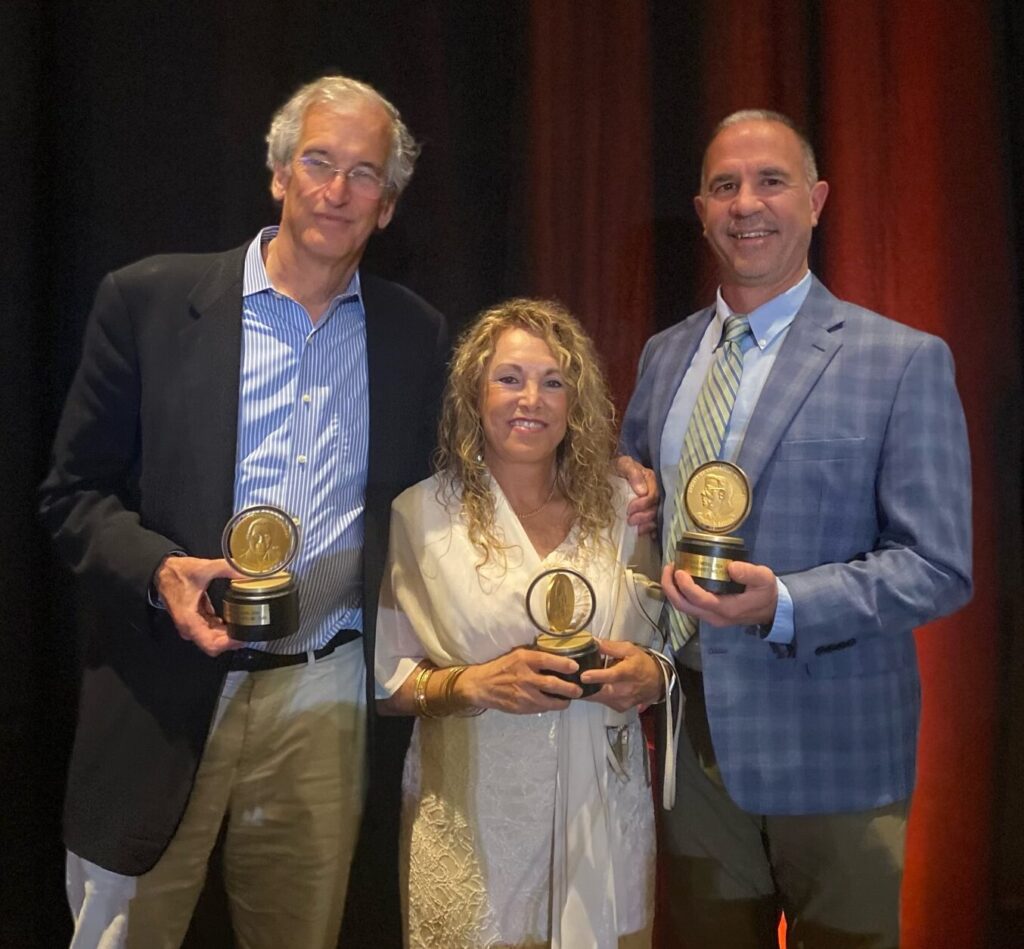
Perry Pickhardt, MD accepted a Gold Medal at the annual Society of Abdominal Radiology (SAR) meeting in April. The Gold Medal is the highest honor bestowed by SAR and is awarded for an individual’s outstanding contributions to abdominal radiology, medicine, and patient health.
Dr. Pickhardt is a world-renowned researcher with focuses on CT colonography, colorectal cancer screening, artificial intelligence, oncologic imaging, and opportunistic CT screening. His findings have resulted in over 500 scientific publications and earned him two Most Influential Radiology Researcher awards from AuntMinnie, multiple Best of American Journal of Roentgenology (AJR) Awards, and seven best paper awards from the SAR.
He has been a dedicated educator at UW–Madison for over two decades and serves in leadership roles as the chief of gastrointestinal imaging for the department and formerly the medical director of oncological imaging for the UW Carbone Cancer Center.
We interviewed Dr. Pickhardt to discover impactful moments in his career that led to his Gold Medal.
Your biography notes that Madison is your hometown. How does it feel to be conducting research, making medical advancements, and educating future radiologists in the place that you grew up? Did you always plan on returning to Madison? If not, what drew you back?
After graduating from UW-Madison, it was never my plan to return. However, after being away for medical school, residency, and my Navy payback, it was time for me to find an academic radiology practice. I was leaning towards going to Duke but Fred Lee convinced me to take a courtesy visit to UW Radiology. If nothing else, it was a nice way for me to visit my parents and in-laws, all of whom were still in Madison. When I saw what Fred was building at that time (around 2002), I knew my future in Madison could be bright.
Some of your recent work has been dedicated to AI. What sparked your interest in this technology? How do you see it being further incorporated in the field?
For many years, my CT-based research involved trying to add value by leveraging incidental and additional findings that were going unused. The advent of AI simply allowed this same work to be fully automated and more efficient, paving the way for much larger, population-based studies.
Looking back on your career, what are some moments that you’re most proud of?
In the Navy, I ran a multi-million dollar, multi-center trial when I was just a year or two years beyond residency training. This trial was published in the NEJM [New England Journal of Medicine] the month I moved to UW and made quite a splash. This initial work led to many other publications, NIH R01 grants, etc., but most importantly had a positive impact on patient care. This set the tone for the rest of my academic career to date.
What advice would you give to young radiologists, or students who are interested in entering the field?
A career in academic radiology can be incredibly fulfilling, as it blends clinical practice, research, and education in a perfect mix. The potential impact of our work can be far-reaching, and the people that you can interact with around the globe are fascinating.
Can you share what the receipt of this award means to you?
For me, this award is more meaningful than any other accolade in radiology that I can think of. The SAR has always been the most important radiology society and is where I always concentrated my best efforts.
Is there anything else you’d like to share?
UW Radiology has been an amazing and nurturing place to work, with supportive leaders and outstanding colleagues (and people).